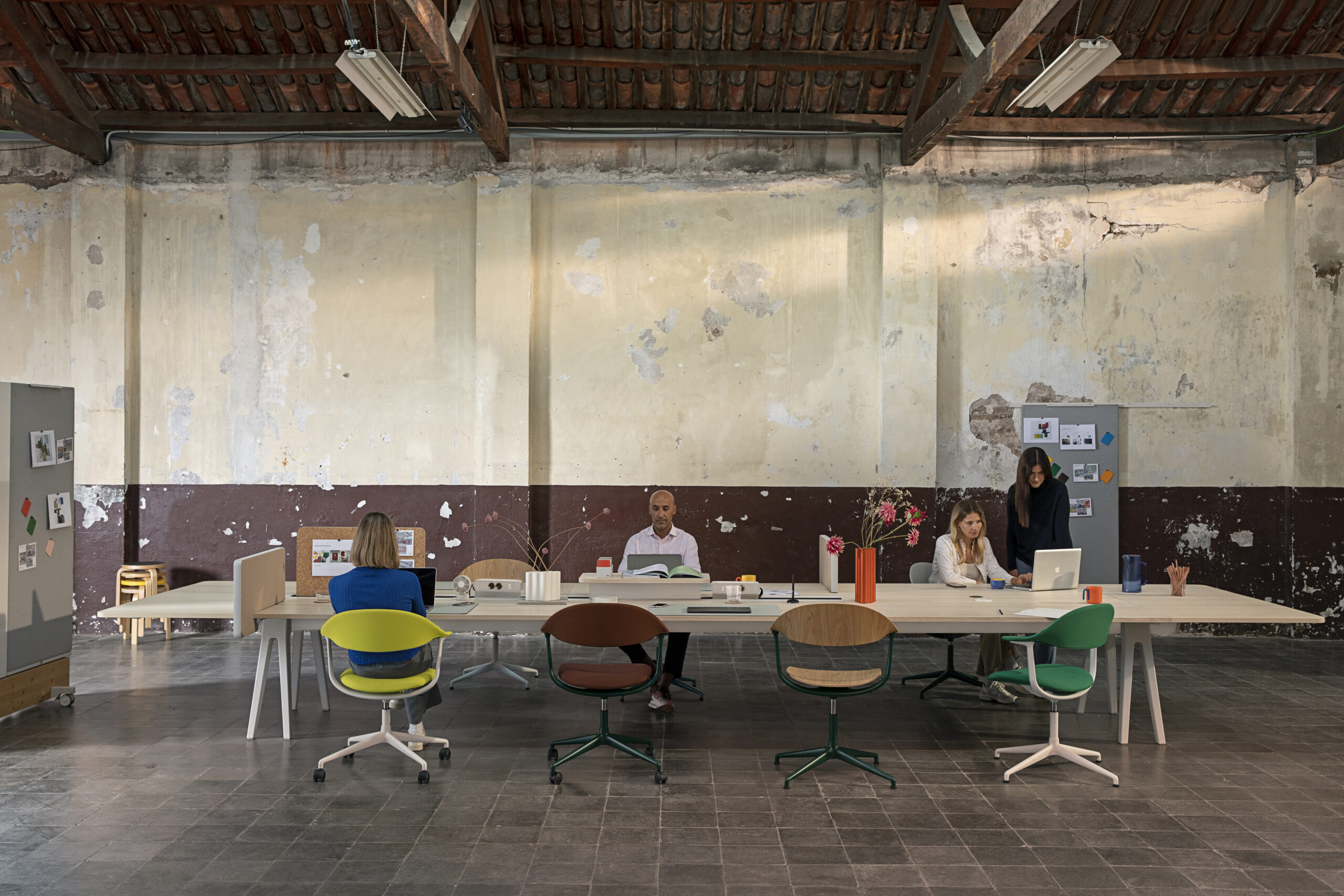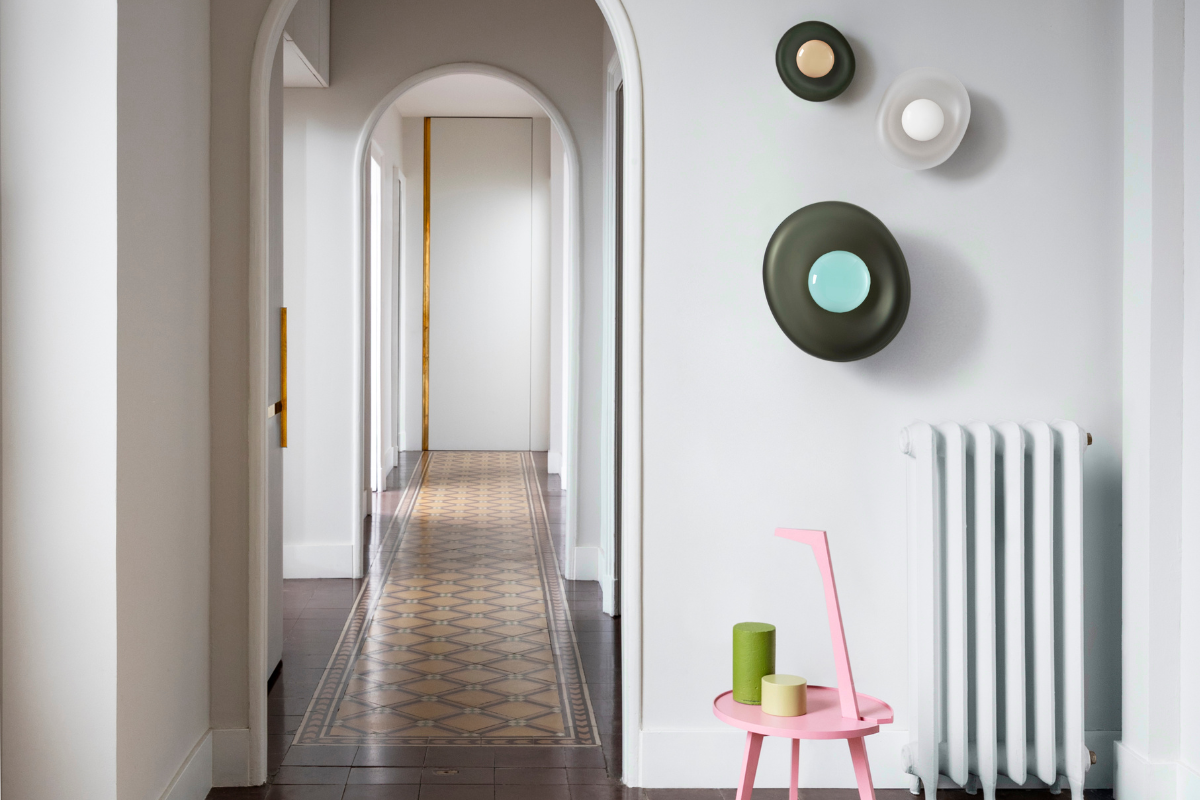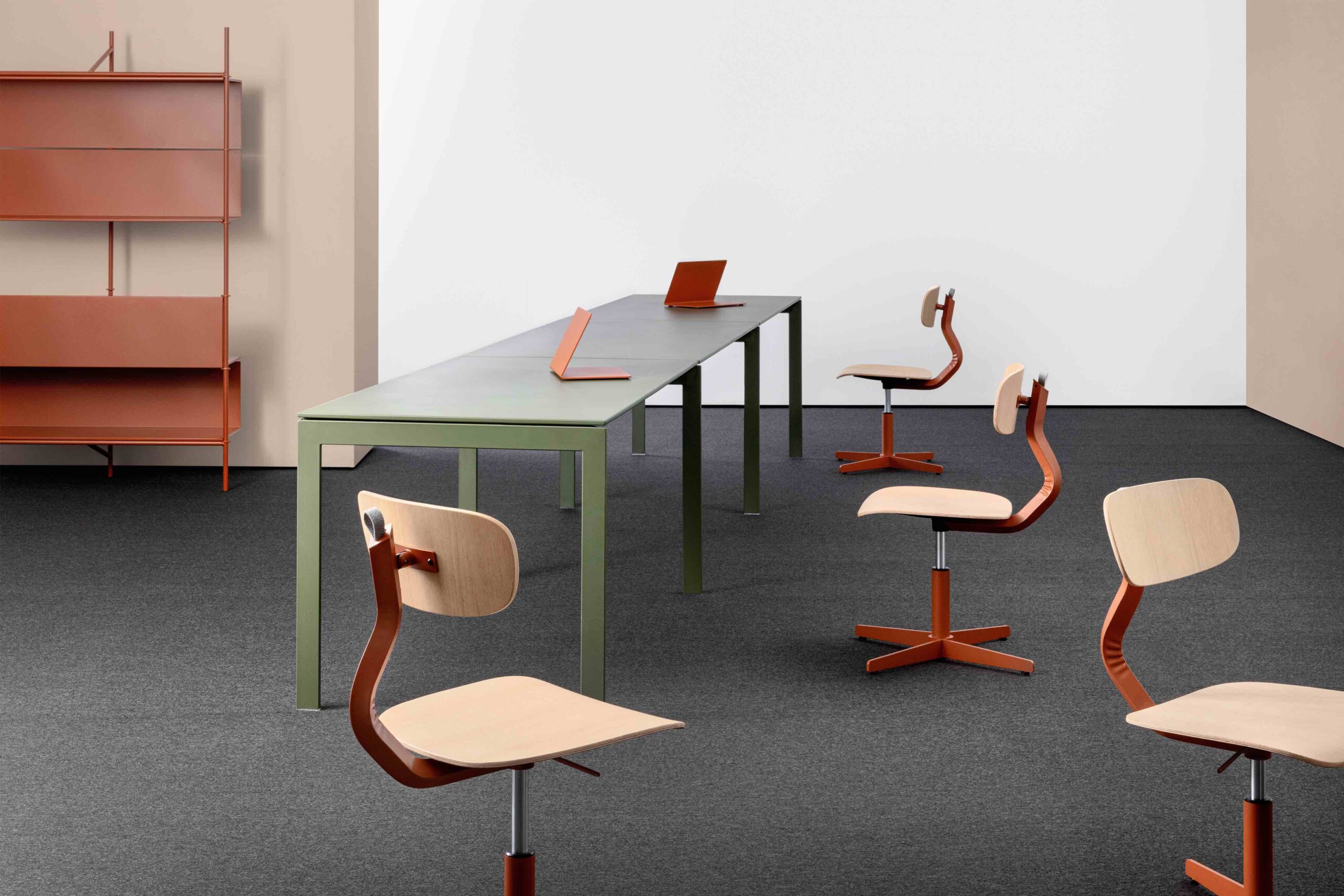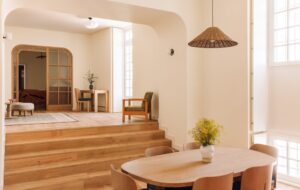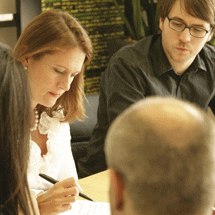
 On her website, a nonchalant Katrina Kostic Samen is perched elegantly half in and half out of a helicopter. As she cheerfully waves her magic wand, buildings pop up effortlessly out of the cartoon cityscape.
On her website, a nonchalant Katrina Kostic Samen is perched elegantly half in and half out of a helicopter. As she cheerfully waves her magic wand, buildings pop up effortlessly out of the cartoon cityscape.
In reality, of course, major property development takes rather more than a bit of fairy dust, as Kostic Samen – a former partner at workplace specialist Gensler – knows full well. But as head of her own strategy, design and architecture firm KKS – with a 25-year track record of advising blue-chip clients on complex multi-million pound relocations, rationalisations and refurbishments – she’s entitled to have a little bit of fun.
Joking aside, her achievements are impressive. On a window at KKS’ Southwark offices, a map of London is covered with dots representing major properties that she’s had a hand in, with clusters in the City, West End and Docklands, including big names such as Norton Rose, Clifford Chance and several confidential major banking clients.
“Twelve schemes that I’ve been involved in are currently [going up] on the skyline,” she points out proudly.
Her firm’s hybrid role is tricky to sum up neatly. In simple terms, she sees herself as the link between the developer, the occupier and the architect: “I’m that piece of glue,” she says, pointing out that a lot of architects may design pretty buildings, but that doesn’t mean they necessarily know how to get the most out of a plan, how to organise the circulation space or even where to put the front door. That’s where KKS’ expertise comes in, with the firm scrutinising plans right down to the height of the windowsills, the toilet configurations and the loading bay positions, and suggesting changes where necessary.
“I try to bring the best of what an occupier would look for to the development,” she says.
Sometimes Kostic Samen works with the developer and its architect at an early stage to adapt the design of a proposed building in order to attract and secure the right tenant. Sometimes she helps tenants formulate their property needs to suit their business goals, and then organises a search for appropriate sites, entering into discussions with shortlisted developers and their architects right down to heads of terms and agreement to lease, and then helping her clients make the best choice.
Big, complex projects don’t scare Kostic Samen. Norton Rose lasted five years and she’s currently working with architects KPF on a 130,000sq m headquarters for a leading global financial services company. But KKS also takes on smaller design projects of its own, such as new premises for Beetham Organisation and Vivid Interiors.
It’s an unusual route for a graduate in interior architecture and environmental design to take. But listen to her talk and her references are all finance and business – more management consultant than creative, or at least a fusion of the two. At KKS, these two sides of her can come into their own.
“I like the creative aspect of design and architecture. But my focus is on reading the FT, Newsweek, Time, the business journals, to understand who the client is, and what their thought process is,” she says.
Kostic Samen’s globe-trotting upbringing must be a help in dealing with her international, frequently American clientele. Born in Athens to a Ukranian-American diplomat father and an English mother, she lived in Pakistan and Germany before spending four years at school in England, and then moving to the US when she was 14. After university, she worked for a healthcare practice and then at three Gensler offices in the US before moving with them to London. And while she retains a subtle American accent, she feels more English.
On the day of this interview she is dressed in a stylish business suit with a large fabric flower corsage of the sort favoured by Carrie in Sex and the City. Indeed, her 16-strong office is predominantly female, which is still highly unusual in the property/development world.
But she’s shown that she’s far more than a novelty. At Gensler, she was one of four staff sent over to open the London office in 1989, coinciding rather unfortunately with the onset of the recession. But Gensler, and Kostic Samen, toughed it out. After a few years, the other founding staff went back to the US, but she stayed on, and by the time she left as partner, Gensler’s London office had grown to 300.
“I adored Gensler. I grew my career with them and had the most amazing training,” she says.
But by late 2003 and now with two children, Kostic Samen felt ready for a change. Initially working from her kitchen table, she set up KKS. Norton Rose was a key project from the onset. Here the challenge was to help the client bring its seven offices together on one site at the same time as it was moving them from a traditional law firm set up to more of a corporate model. KKS narrowed sites down to the shortlist of two, discussing with the scheme architects how to fulfil the client’s needs, and presenting the options back to the client. The result was that Norton Rose chose 3 More London designed by Foster + Partners, who subsequently adapted aspects of the scheme including re-siting the building to maximise views and redesigning the structural column grid.
Legal clients have become a speciality. KKS has also worked with Allen & Overy and Burges Salmon and has just finished offices for Eversheds at One Wood Street, providing strategic planning and concept design in collaboration with Fletcher Priest Architects and Woods Bagot. Like many law firms, Eversheds was exploring ways of becoming less cellular and KKS analysed open-plan and cellular options, coming up with a studio concept compromise. This arranges people in two, four, six or eight-person modules as appropriate, with three options of screen heights to give increased privacy to those who need it.
Over the years, she’s worked with Foster, Rogers Stirk Harbour + Partners, Foreign Office Architects, Grimshaw & Partners and many more big names. Unsurprisingly, not all have taken kindly to KKS suggesting some quite significant changes.
“We’ve just had two strong run-ins with major architects. Luckily the client backed what I said. More often than not it’s fine,” she says, adding that KKS is increasingly getting calls from architects directly asking if they’ll look over office plans.
Having been there before in the recession of 1989, Kostic Samen is pragmatic about the prospect of an economic downturn.
“There’s no question it’ll affect all of us,” she says, heartened that her big 130,000sq m project is still going ahead, and pointing out that legal clients aren’t as affected as other sectors by a downturn. And if anything, it makes KKS’ work even more essential – developers will have to work harder to attract occupiers and will be asking her advice, she hopes, on future-proofing their buildings for different scenarios. And attention to details of the sort that KKS specialises in will certainly matter more: “I can’t tell you how many deals we’ve done on the quality of the toilets – we spend hours detailing them,” she says.
Full of drive and energy, she is clearly enjoying running her own show: “We have a really good time. Otherwise it’s not worth it.”
Contrary to her website cartoon, Kostic Samen may not be a fairy godmother. But with her expert knowledge and dynamic attitude, she can still make her clients’ dreams come true.



